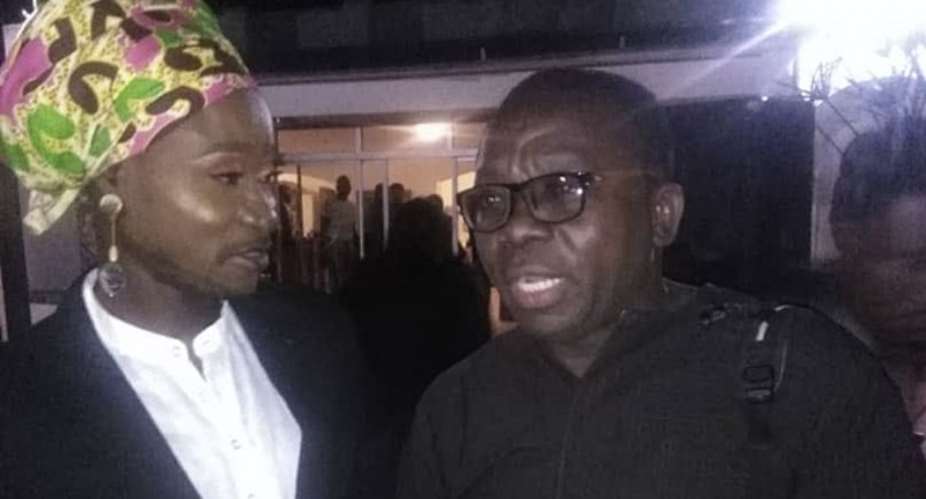The Advocacy for Alleged Witches commends the police for arresting suspects linked to the brutal murder of a 70-year-old man, Albert Katoka, on suspicion of witchcraft in Zambia. Unfortunately, the police did not arrive early enough and could not save the life of this innocent man. According to news reports , Katoka's case is among so many instances of the murder of elderly persons accused of witchcraft in the country. Accused persons are subjected to jungle justice and mob violence. Very often the police arrive when harm has been done. They arrest suspects, if at all. In the case of Katoka, he died after a mob stoned and hit him with sticks. His killing was public, and involved many people.
While the arrest of those linked to the gruesome murder of Katoka is a welcome development, there is a need for the police to change its approach to addressing the problem of witch persecution in Zambia. There is something fundamentally wrong with policing witchcraft accusations in Zambia. There is an urgent need to review how law enforcers treat cases of witchcraft accusations in the country. As the report has noted, many elderly people accused of witchcraft are killed. So this incident is not an isolated case. There is a known and existing pattern of accusing and murdering old people for witchcraft in Zambia. So the police have no excuse for allowing the horrific killings to continue. The police are aware of this situation, that is, the tendency to accuse and murder old people. So they should be more proactive than reactive in addressing the problem.
The police should be ready to intervene and help nip accusations in the bud. They should put in place some intelligence network in the communities that can notify them of potential cases of allegation and persecution. The police should have a mechanism to reward local whistleblowers and informants. For instance, the murder of Katoka did not suddenly happen. It took some time and involved some people and planning. People in the community must have rumored and pointed accusing fingers at him for some time. Some people must have gone to consult or invite witch-finders and hunters.
Within this period, some people could have contacted and put the police on alert. Katoka was the head of the community. It takes some effort and time to attack or kill him. Some of the community members received information about the allegation before he was attacked and killed. But they did not pass the information on to the police. Again the police should know those communities where elders are likely to be accused or killed. They should identify parts of the province where accusations and mob violence are rampant and place them on a watchlist. The police should liaise with other agencies to sensitize the public and urge people who suspect witchcraft not to take laws into their hands.
They should warn the Nganga against charlatanism and certification people as witches or as perpetrators of occult harm in the communities. Witch doctors who claim to identify and exorcize witchcraft are part of the problem. They should be sanctioned. The police should work with health institutions to combat witchcraft accusations and persecutions because witchcraft allegation is a public health issue. Witchcraft accusation is rooted in medical misinformation and misrepresentation. Witchcraft is a narrative to make sense of illness and death. In the case of Katoka, he was accused of being responsible for the sickness and death of a female member of his community. There was no evidence of how he caused the illness. The police should collaborate with health agencies and make the people of Zambia realize that no one can cause the ailment or death of others through magical means.
Leo Igwe directs the Advocacy for Alleged Witches...





 We’ll no longer tolerate your empty, unwarranted attacks – TUC blasts Prof Adei
We’ll no longer tolerate your empty, unwarranted attacks – TUC blasts Prof Adei
 Bawumia donates GHc200,000 to support Madina fire victims
Bawumia donates GHc200,000 to support Madina fire victims
 IMF to disburse US$360million third tranche to Ghana without creditors MoU
IMF to disburse US$360million third tranche to Ghana without creditors MoU
 Truck owner share insights into train collision incident
Truck owner share insights into train collision incident
 Paramount chief of Bassare Traditional Area passes on
Paramount chief of Bassare Traditional Area passes on
 Two teachers in court over alleged illegal possession of BECE papers
Two teachers in court over alleged illegal possession of BECE papers
 Sunyani: Victim allegedly shot by traditional warriors appeals for justice
Sunyani: Victim allegedly shot by traditional warriors appeals for justice
 Mahama vows to scrap teacher licensure exams, review Free SHS policy
Mahama vows to scrap teacher licensure exams, review Free SHS policy
 Government will replace burnt Madina shops with a new three-story, 120-store fac...
Government will replace burnt Madina shops with a new three-story, 120-store fac...
